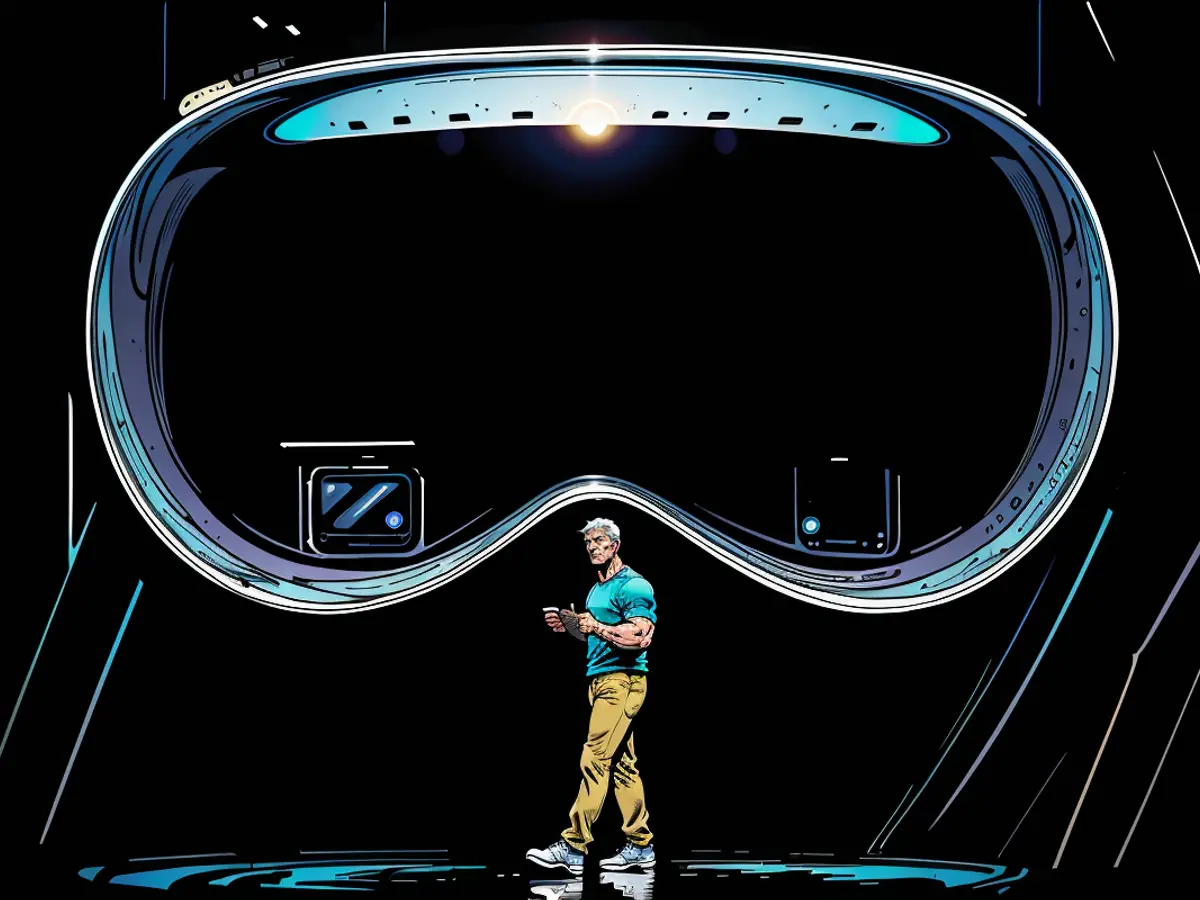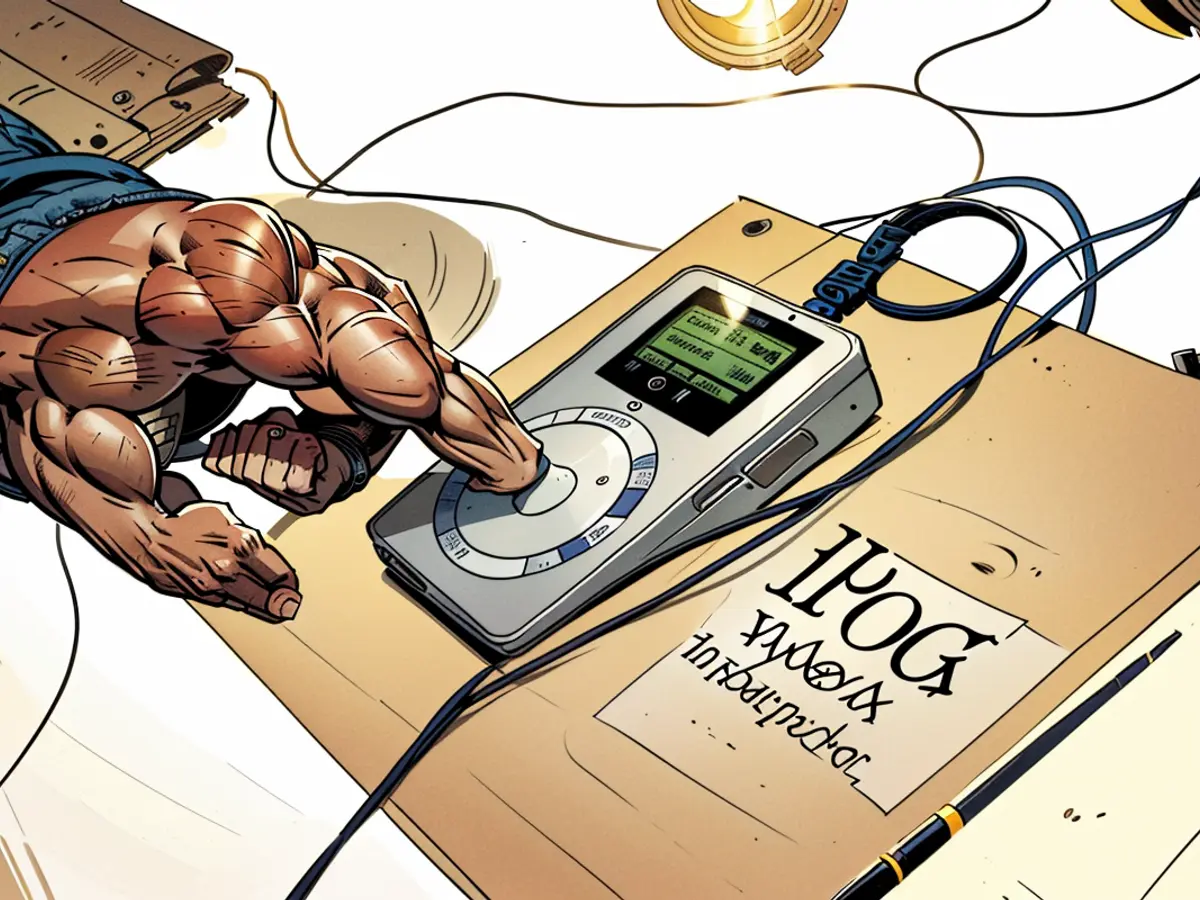Viewpoint: Apple can regain its former glory.
Apple has been keeping its planned announcements for Monday under wraps tighter than Fort Knox. There's a feeling among observers that whatever they reveal had better impress, as the tech giant has faced some setbacks this year.
First, the company saw a significant drop in sales in China as its iPhones faced stiff competition from local players like Huawei Mate. Apple had to offer steep discounts to stay competitive. In 2023, the International Trade Commission ruled that Apple infringed on medical equipment manufacturer Masimo's patents in designing a pulse oximeter for the new Apple Watches, forcing Apple to halt sales of those versions in December until they could temporarily remove the feature while the decision was appealed. Finally, in March, the Justice Department sued Apple for anticompetitive practices related to its dominance in the US smartphone market, which poses a threat to the core of its business (Apple denied the allegations).
Despite these challenges, Apple remains a global powerhouse. The company's stock is now just below its all-time high, putting its valuation back at around $3 trillion (six years after it became the world's first trillion-dollar company). The iPhone, with a 17% share of the global smartphone market in terms of units sold and a mind-boggling 43% of global smartphone revenues, plays a significant role in Apple's growth. Meanwhile, its services business, which includes app and content sales, is expected to account for a quarter of its total revenue by 2025.
However, to maintain its status as a tech titan, Apple must continually innovate and stay ahead of the curve. There's growing speculation about its plans related to artificial intelligence (AI). Some think Apple is partnering with OpenAI (along with Google and AI startup Anthropic), a development that seems to run counter to Apple's preference for keeping essential technologies in-house and, at best, seems like a catch-up play rather than a game-changer.
Other rumors suggest Apple's work on OpenELM, a set of four scaled-down open-source language models, indicates the company is moving in a different direction: delivering efficient AI features "on handset" without cloud-based assistance.
The promised features—voice memo transcription, chat summaries, website summarization, photo retouching, and custom emojis—don't seem particularly revolutionary. But they could still be significant if Apple can make them work seamlessly.
But Apple has struggled in recent years to reclaim the cultural narrative it had under Steve Jobs. While it has continued to turn a profit and bolster its market presence under Tim Cook, the company has yet to demonstrate a unique ability to once again change the way people see technology's role in their lives.
Two of Apple's much-touted innovation projects derailed spectacularly. In February, Apple gave up on Project Titan, the ambitious $10 billion effort to design an Apple-branded electric car it had been pursuing for a decade. And the mixed reality "headtop" computer, the Vision Pro, failed to ignite consumer interest following its lavish reveal at WWDC.
The issue, say critics, was that the demos felt disconnected from practical applications. The captivating computer-generated presentation at WWDC showed users meditating in front of virtual mandalas, wandering around floating windows in their homes, and working while surrounded by a swarm of apps. The iPod's reveal, by contrast, was more relatable: "1,000 songs, and it goes right in my pocket." The promise of having all your music at your fingertips was a game-changer that ultimately made portable consumer electronics mainstream.
Apple needs to remake that magic to remain relevant and avoid fading into the background. And with its recent issues, the stakes are higher than ever.
0
What's the equivalent of "songs-in-your-pocket" for Apple's Vision Pro? Spreadsheets on your face? That's definitely not a feature that would attract many people to spend $3500 on "spatial computing." Although Vision Pro shouldn't be countEd out - the iPad, Apple Watch, and even the first iPhone all needed time to find their place. But right now, if Apple wants to regain its position as a leader in real-world relevance, Vision Pro isn't it - not yet. The device's battery life requires it to be attached to an external waist-mounted power pack, limiting its untethered usage time. The most significant feature of EyeSight, which shows a transparent image of the wearer's eyes to the world through an outward-facing screen to make it seem less like a barrier, has been the target of mockery.

However, Apple holds a special position in the world of consumer tech. People view the company as one of the few lifestyle brands that influence more than just benchmark performance. Apple's achievements are rooted in redefining how people use their products, leading to changes in values and everyday behaviors.
In 1998, the iMac stood out despite its underperforming computing power. Its attractive design made it a living room computer that people displayed instead of hiding. This paved the way for greater integration of digital devices in media consumption, home control, and family interactions.
In 2008, the MacBook Air became the first laptop that felt like a fashion accessory, inspiring the term "purse PC." Even the original iPhone revolutionized how people interacted with their handheld devices and screen-based communication by ditching most buttons and suggesting a minimalist touchscreen instead, changing how we connected.
The common thread in these transformative shifts was design - changes in form and interface based on insights into how people wanted to engage with their digital world and each other.
In the last 13 years, Cook has led the company, and especially in the last 5 years since Jony Ive, former chief design director, left, Apple hasn't made the same cultural impact. But to make a significant impact, you need to take bold risks. Despite the ridicule generated during WWDC 2023 for EyeSight, a feature that seems silly and uncomfortable in its current iteration, it's an honest effort to address a significant concern regarding head-mounted gadgets.
Embracing unconventional approaches to integrating new technologies recalls Jobs and Ive's focus on the relationship between technology and the liberal arts, computing and humanity. Let's hope that at this year's WWDC, Apple defies the laughter from last year and remains dedicated to thinking differently.
Get our free weekly newsletter
Sign up for CNN Opinion's newsletter.Follow us on Twitter and Facebook
Related Topics
- Apple
- Technology
- Innovation
- Design

Read also:
While some critics argue that the proposed features for the Vision Pro aren't revolutionary, others believe that seamless integration is key to Apple regaining its influence. For instance, if Apple can make voice memo transcription, chat summaries, or photo retouching work flawlessly on the Vision Pro, these features could significantly enhance its appeal and solidify its position as a tech leader. Furthermore, it's crucial for Apple to garner positive opinions and user experiences with the Vision Pro to avoid being seen as outdated and deter consumers from investing in its innovative technology.







